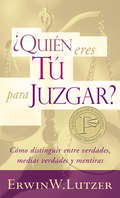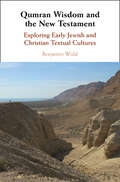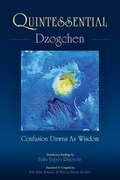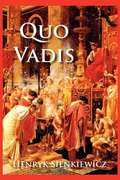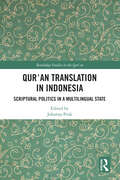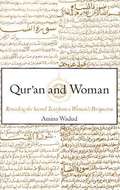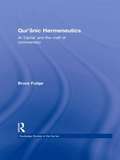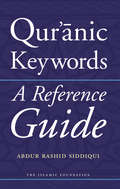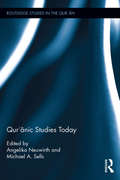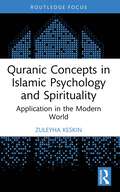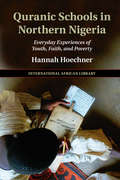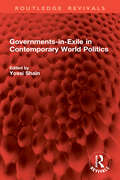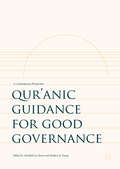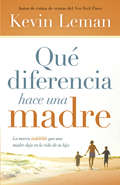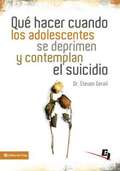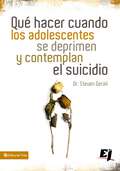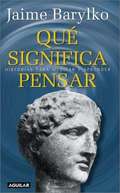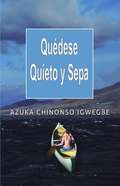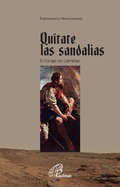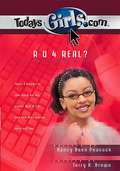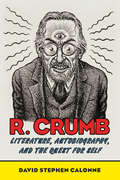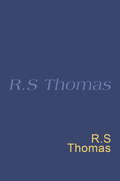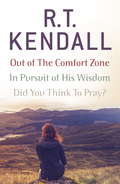- Table View
- List View
Quién eres tú para juzgar?: Cómo distinguir entre verdades, medias verdades y mentiras
by Erwin W. LutzerHemos perdido la capacidad para juzgar al mundo porque hemos perdido la habilidad de juzgarnos a nosotros mismos. Un libro que trata acerca del discernimiento, la capacidad para distinguir entre lo falso y lo verdadero, o mejor todavía, para diferenciar la verdad de la verdad a medias. El autor nos invita a explorar cómo distinguir entre verdades y mentiras, cómo juzgar a los falsos profetas y las apariencias.[This is a book about discernment: the ability to distinguish the lie from the truth; or better, the lie from the half-truth. Christians have a responsibility to make wise judgements in a nonjudgemental world]
Qumran Wisdom and the New Testament: Exploring Early Jewish and Christian Textual Cultures
by Benjamin WoldIn this book, Benjamin Wold builds on recent developments in the study of early Jewish wisdom literature and brings it to bear on the New Testament. This scholarship has been transformed by the discovery at Qumran of more than 900 manuscripts, including Hebrew wisdom compositions, many of which were published in critical editions beginning in the mid-1990s. Wold systematically explores the salient themes in the Jewish wisdom worldview found in these scrolls. He also presents detailed commentaries on translations and articulates the key debates regarding Qumran wisdom literature, highlighting the significance of wisdom within the context of Jewish textual culture. Wold's treatment of themes within the early Jewish and Christian textual cultures demonstrates that wisdom transcended literary form and genre. He shows how and why the publication of these ancient texts has engendered profound shifts in the study of early Jewish wisdom, and their relevance to current controversies regarding the interpretation of specific New Testament texts.
Qunitessential Dzogchen
by Tulku Urgyen RinpocheQuintessential Dzogchen elucidates how our confusion can dawn aswisdom. Arranged for the simple meditator, these pithy instructionsstrike the heart of the Buddha's teachings by explaining how to bothacknowledge and train in your own enlightened essence.Quintessential Dzogchen is an invaluable handbook replete with sourcematerials for those who seek further guidance. In forty-two writings bysome of the greatest masters, both past and present, as well as excerptsfrom the most profound scriptures, the entire ground, path & fruition ofthe foremost teachings of Tibetan Buddhism are clearly explained."For many people, the main point of the Buddha's teaching involvesnothing more than understanding the difference between recognizingand not recognizing mind-essence. Not recognizing is samsara, whilerecognizing is nirvana or liberation. It's from this perspective that we saythat all of the Buddha's teachings are simply about the mind."-Tulku Urgyen Rinpoche
Quo Vadis: A Narrative of the Time of Nero
by Henryk SienkiewiczHenryk Sienkiewicz (1846-1916) won the 1905 Nobel Prize in Literature. A brilliant Polish writer and patriot, he is possibly best known abroad for his monumental historical epic Quo Vadis that portrays the vibrant and dissonant combination of cruel excesses and decadence of Rome during the reign of the corrupt Emperor Nero and the high faith of the emerging era of early Christianity. Quo Vadis: A Narrative of the Time of Nero, is a love story of Marcus Vinicius, a passionate young Roman tribune, and Lygia Callina, a beautiful and gentle Christian maiden of royal Lygian descent and a hostage of Rome, raised in a patrician home. At first Marcus, a typical aristocratic Roman libertine of his time, has no notion of love and merely desires Lygia with erotic animalistic intensity. Through political machinations of the elegant Petronius he contrives to have her taken by force from her foster home and into the decadent and terrible splendor of the court of Ceasar, setting in motion a course of events that culminate in his own spiritual redemption. Intricately researched, populated with vibrant historical figures, and gorgeous period detail, bloody spectacle and intimate beauty, this is an epic tapestry of the triumph of love, faith and sacrifice.
Qur'an Translation in Indonesia: Scriptural Politics in a Multilingual State (Routledge Studies in the Qur'an)
by Johanna PinkThis book provides a comprehensive survey of Qur’an translation in Indonesia – the most populous Muslim-majority country in the world with a highly diverse, multilingual society. Delving into the linguistic and political dimensions of this field, the contributors – many of whom are Indonesian scholars – employ a wide range of historical, socio-cultural, linguistic and exegetical approaches to offer fresh insights. In their contributions, the negotiation of authority between state and of non-state actors is shown to be a constant theme, from the pre-print era through to the colonial and postcolonial periods. Religious organizations, traditional institutions of scholarship and Wahhabi-Salafi groups struggle over the meaning of the Qur’an while the Ministry of Religious Affairs publishes its own Qur’an translations into many of the country’s languages. The contributors also explore the influential role of the Ahmadiyya movement in shaping Qur’an translation in Indonesia. Moreover, they examine the specific challenges that translators face when rendering the Qur’an in languages with structures, histories and cultural contexts that are vastly different from Arabic. Opening up the work of Indonesian scholars to a wider audience, this book will appeal to anyone interested in Qur’anic studies and Islam in the Southeast Asia region.
Qur'an and Woman: Rereading the Sacred Text from a Woman's Perspective, 2nd ed.
by Amina WadudFourteen centuries of Islamic thought have produced a legacy of interpretive readings of the Qu'ran written almost entirely by men. Now, with Qu'ran and Woman, Amina Wadud provides a first interpretive reading by a woman, a reading which validates the female voice in the Qu'ran and brings it out of the shadows. Muslim progressives have long argued that it is not the religion but patriarchal interpretation and implementation of the Qu'ran that have kept women oppressed. For many, the way to reform is the reexamination and reinterpretation of religious texts. <P><P>Qu'ran and Woman contributes a gender inclusive reading to one of the most fundamental disciplines in Islamic thought, Qu'ranic exegesis. Wadud breaks down specific texts and key words which have been used to limit women's public and private role, even to justify violence toward Muslim women, revealing that their original meaning and context defy such interpretations. What her analysis clarifies is the lack of gender bias, precedence, or prejudice in the essential language of the Qur'an. <P><P>Despite much Qu'ranic evidence about the significance of women, gender reform in Muslim society has been stubbornly resisted. Wadud's reading of the Qu'ran confirms women's equality and constitutes legitimate grounds for contesting the unequal treatment that women have experienced historically and continue to experience legally in Muslim communities. The Qu'ran does not prescribe one timeless and unchanging social structure for men and women, Wadud argues lucidly, affirming that the Qu'ran holds greater possibilities for guiding human society to a more fulfilling and productive mutual collaboration between men and women than as yet attained by Muslims or non-Muslims.
Qur'an: Bullet Guides Everything You Need to Get Started
by Victor W WattonOpen this book and you will Learn how the Qur'an came into being Understand how it is used today Ocercome misconceptions Tackle issues of interpretation
Qur'an: Everything You Need to Get Started
by Victor W WattonOpen this book and you will Learn how the Qur'an came into being Understand how it is used today Ocercome misconceptions Tackle issues of interpretation
Qur'anic Hermeneutics: Al-Tabrisi and the Craft of Commentary (Routledge Studies in the Qur'an)
by Bruce FudgeThe work of the twelfth-century Shi’ite scholar al-Tabrisi, Majma’ al-bayan, is one of the most important works of medieval commentary on the Qur’an, and is still in use today. This work is an in-depth case study of Islamic exegetical methods and an exploration of the nature of scriptural interpretation in Islam. Drawing on a wide variety of sources including unpublished manuscripts, the author examines how exegesis serves to construct, maintain and defend the status of the Qur’an as scripture and to uphold certain ideological agendas, among them the notion of the literary and rhetorical supremacy of God’s revelation in Arabic. Focusing on the genre and process of Qur’anic exegesis itself, he treats Qur’an interpretation as part of a category of religious practice recognizable from the history and comparative study of religion. Written in clear and accessible style, Qur’anic Hermeneutics makes Qur’anic exegesis intelligible to specialists in Islam as well as those interested in scripture and its interpretation in general. As such, it will be a valuable reference to scholars of Islamic studies, religion and scripture.
Qur'anic Keywords
by Abdur Rashid Siddiqui"This book is a valuable addition to the Qur'anic literature in English and it is worth having in every Muslim home as . . . a reference book." ¬--Professor Syed Salman Nadvi, Durban UniversityThis book provides a concise and authoritative guide to 140 keywords in the Qur'an. The full meaning of each keyword is given, with Qur'anic citations and discussions of allied and related terms. Ideal for students of the Qur'an as well as general readers.
Qur'ānic Studies Today (Routledge Studies in the Qur'an)
by Angelika Neuwirth Michael A SellsQur'ānic Studies Today brings together specialists in the field of Islamic studies to provide a range of essays that reflect the depth and breadth of scholarship on the Qur'ān. Combining theoretical and methodological clarity with close readings of qur’ānic texts, these contributions provide close analysis of specific passages, themes, and issues within the Qurʾān, even as they attend to the disciplinary challenges within the field of qur’ānic studies today. Chapters are arranged into three parts, treating specific figures appearing in the Qurʾān, analysing particular suras, and finally reflecting on the Qur’ān and its "others." They explore the internal dimensions and interior chronology of the Qur’ān as text, its possible conversations with biblical and non-biblical traditions in Late Antiquity, and its role as scripture in modern exegesis and recitation. Together, they are indispensable for students and scholars who seek an understanding of the Qur’ān founded on the most recent scholarly achievements. Offering both a reflection of and a reflection on the discipline of qur’ānic studies, the strong, scholarly examinations of the Qur’ān in this volume provide a valuable contribution to Islamic and qur’ānic studies.
Quranic Concepts in Islamic Psychology and Spirituality: Application in the Modern World (Islamic Psychology and Psychotherapy)
by Zuleyha KeskinThis book explores how the Qur’ân’s timeless teachings enrich contemporary psychological theories, bridging the gap between Islāmic wisdom and psychological well-being.It offers a comprehensive guide to understanding and applying Qur’ânic concepts in the realm of mental health. Grounded in Islāmic scholarship, it references both classical and modern Islāmic sources to explain fundamental Qur’ânic concepts in Islāmic psychology. The book is structured around three key areas: first, an Islāmic perspective on human faculties, essential for self-knowledge and self-awareness; second, the five pillars of Islam, which play a central role in psychological resilience; and third, various Qur’ânic spiritual concepts linked to mental well-being, such as ṣabr (patience), shukr (gratitude), riḍā (contentment) and iṭmi’nān (peacefulness).By integrating Islāmic principles with contemporary psychological insights and promoting a holistic approach to well-being, this book serves as a vital resource for personal development, academic study, and professional practice, particularly for mental health professionals working with Muslim clients.
Quranic Schools in Northern Nigeria: Everyday Experiences of Youth, Faith, and Poverty (The International African Library #54)
by Hannah HoechnerIn a global context of widespread fears over Islamic radicalisation and militancy, poor Muslim youths, especially those socialised in religious seminaries, have attracted overwhelmingly negative attention. In northern Nigeria, male Qur'anic students have garnered a reputation for resorting to violence in order to claim their share of highly unequally distributed resources. Drawing on material from long-term ethnographic and ‘participatory’ fieldwork among Qur'anic students and their communities, this book offers an alternative perspective on youth, faith, and poverty. Mobilising insights from scholarship on education, poverty research, and childhood and youth studies, Hannah Hoechner describes how religious discourses can moderate feelings of inadequacy triggered by experiences of exclusion, and how Qur'anic school enrolment offers a way forward in constrained circumstances, even though it is likely to reproduce poverty in the long run. A pioneering study of religious school students conducted through ‘participatory’ methods, this book presents vital insights into the concerns of this much-vilified group.
Qur’an and Bible: Studies in Interpretation and Dialogue (Routledge Revivals)
by M. S. SealeRival ‘communities of the faithful’ are not in the habit of reading each other’s books, and when they do so, it is often to find fault and disparage. This attitude, so common a generation ago, is today giving way to mutual tolerance and an interest in ‘dialogue’. However, we are still at the stage of being content with a superficial reading of each other’s scriptures.First published in 1978, Qur’an and Bible attempts to delve deeper, to solve some persistent puzzles, and to explore the common culture from which the Holy Books spring. Hebrew and Arabic, the original languages of the Bible and Qur'an are of the same linguistic family. Hence Arabic is a useful instrument with which to probe for the meaning of ancient Hebrew expressions and ideas as found in the Old Testament, and which continue to pose problems for translators and commentators. It is not merely a matter of one language elucidating another, but, more profoundly, of the light a language with a long unbroken tradition can throw on the desert culture shared by both the ancient Hebrews and the ancient Arabians.
Qur’anic Guidance for Good Governance
by Abdullah Al-Ahsan Stephen B. YoungThis book is a study of religious principles of good governance in our contemporary societies. Historically, religion has provided guidance for organizing societies. In modern times, however, religious ideas have been marginalized in social science literature. Contributors to this work explore what values and practices the Qur'an can contribute to governing our economic, political, and social life today.
Qué diferencia hace una madre: La marca indeleble que una madre deja en la vida de su hijo
by Kevin LemanLos varones siempre serán varones. Y nadie hace un impacto más poderoso en ellos que usted, mamá. Su niño quiere complacerla, y por eso es sumamente importante para él lo que usted piense. Esa necesidad propulsora estará con él toda su vida. Eso le da a usted, mamá, una gran influencia sobre su hijo. Usted puede prepararlo para el éxito en la vida. En QUÉ DIFERENCIA HACE UNA MADRE, el doctor Kevin Leman, autor de éxitos de ventas de la lista del New York Times, revela cómo usted puede dejar una impresión positiva en su hijo, desde el primer momento en que lo carga en sus brazos hasta cuando se va de casa. Con el asesoramiento especializado del doctor Leman, usted entenderá quién es su hijo internamente, la verdad tras las disputas entre hermanos (y cómo lidiar con ellas), el secreto para aplicar una disciplina que funcione todo el tiempo y cómo transitar los años críticos de la adolensciencia. También descubrirá cómo ha de impactar su estilo de crianza en la relación con su hijo, y cómo él puede responder de una manera saludable a su creciente interés en el sexo y en las relaciones. ¿Quiere cautivar el corazón de su hijo? ¿Quiere un hombre del que se sienta orgullosa de llamar su hijo? Usted puede hacer la diferencia , porque usted es la persona que más importa en el mundo de su hijo.Aunque él no lo quiera admitir.
Qué hacer cuando los adolescentes se deprimen y contemplan el suicidio
by Steven GeraliAyuda a tus adolecentes A caminar a través de la oscuridad, De la depresión y el suicidio. No hay un manual que explique > cuando se trata de ayudar a los chicos, con los diferentes problemas que enfrentarán durante su adolescencia. Ya sea que trabajes con ellos o seas padre de uno, probablemente ya hayas atravesado alguna de estas problemáticas. Situaciones para las que no te sentiste del todo preparado, o quizás te has cuestionado si esta es tu posición. Hay buenas noticias para ti: ¡No estás solo! En este libro encontrarás respuestas a las preguntas difíciles que puedas enfrentar si surge esta problemática en tu grupo, iglesia o en tu familia. En este práctico libro descubrirás cómo identificar y ayudar a un adolecente que está luchando con la depresión o con pensamientos suicidas. Encontrarás muchas ideas para socorrer a las familias y grupos de jóvenes que enfrentan esta situación. Descubrirás herramientas prácticas para aprender a prevenir el suicidio en los adolescentes de hoy.
Qué hacer cuando los adolescentes se deprimen y contemplan el suicidio (Especialidades Juveniles Ser.)
by Steven GeraliAyuda a tus adolecentes A caminar a través de la oscuridad, De la depresión y el suicidio. No hay un manual que explique > cuando se trata de ayudar a los chicos, con los diferentes problemas que enfrentarán durante su adolescencia. Ya sea que trabajes con ellos o seas padre de uno, probablemente ya hayas atravesado alguna de estas problemáticas. Situaciones para las que no te sentiste del todo preparado, o quizás te has cuestionado si esta es tu posición. Hay buenas noticias para ti: ¡No estás solo! En este libro encontrarás respuestas a las preguntas difíciles que puedas enfrentar si surge esta problemática en tu grupo, iglesia o en tu familia. En este práctico libro descubrirás cómo identificar y ayudar a un adolecente que está luchando con la depresión o con pensamientos suicidas. Encontrarás muchas ideas para socorrer a las familias y grupos de jóvenes que enfrentan esta situación. Descubrirás herramientas prácticas para aprender a prevenir el suicidio en los adolescentes de hoy.
Qué significa pensar
by Jaime BarilkoJaime Barylko nos propone un desafío: detener nuestra marcha, abrumada de problemas cotidianos, para poner a funcionar ese motor llamado pensamiento. Una parábola zen, un episodio bíblico, un poema de Keats, un verso de Borges o una frase de Heráclito pueden ser el detonante. Pero también cualquier episodio de nuestra vida diaria, por mínimo que parezca -el simple acto de pelar una naranja, de cortar una rosa o encender una computadora, la contemplación de una casa, un bosque o una mujer desnuda- nos obliga a poner en duda lo establecido, a reemplazar las fórmulas hechas y las falsas certezas por verdades aprehendidas. Barylko nos enseña que el pensamiento es una actividad lúdica que también se aprende y se ejercita, y lo hace del mejor modo posible: estimulándonos a pensar con aquellos que ya lo hicieron. Este libro acompañará al lector en todo momento, porque aprender a pensar es, finalmente, aprender a vivir.
Quédese Quieto y Sepa
by Azuka Chinonso Igwegbe María TronESTAD QUIETOS es un libro inspirador que nos acerca a la mente que Dios está quieto, se preocupa por sus hijos en este mundo lleno de crisis de fe y un colapso económico. Como resultado de los retos de la vida, mucha gente se preocupa pensando si sobrevivirán. Dios quiere que estemos quietos sin importar la situación de la economía o el cambio climático. Él sabe que preocuparse no resuelve los problemas, sino que crea más problemas para la gente. Él dice que él está con nosotros incluso cuando somos viejos, y Jesús dice que él también está con nosotros hasta el final lo que significa que seguirá con nosotros cuando la economía o el cambio climático no nos sean favorables. El libro nos recuerda que Jesús es nuestra paz, y la paz no es la ausencia de guerra, retos de vida y los gustos, sino confiar en Dios en la tormenta, inamovible por las cosas que vemos o escuchamos, aferrándonos a sus Palabras sin importar el tiempo que le tome aparecer ante nosotros.
Quítate las Sandalias
by Fortunatus NwachukwuEl autor explica en modo maravilloso el significado del gesto de Moisés, de quitarse las sandalias ante la zarza ardiendo (cf. Ex 3,5), de la acción del ciego que tira su manto mientras salta hacia Jesús (cf. Mc 10,46-52), y del padre que viste al hijo, tras regresar a casa arrepentido, con los vestidos de fiesta y con anillos (cf. Lucas 15, 11-32). El libro nos lleva de la mano a recorrer el camino de la conversión, mediante la explicación de estas conocidas narraciones bíblicas, de forma simple y agradable.
R U 4 Real? (TodaysGirls.com #4)
by Terry Brown Nancy PeacockMeet Maya "RU4 Real". Maya pushes the perfect appearance... until it perfectly pushes her to the edge. She's trying to organize a fashion show. She bought the dresses, and they can't be exchanged. Now, she can't believe her friends are going to the lake house without her. They only have a week to squeeze into their designer dresses -- and she knows they're all gonna just pig out the whole time. She'll be the only one left with a waistline.
R. Crumb: Literature, Autobiography, and the Quest for Self
by David Stephen CalonneRobert Crumb (b. 1943) read widely and deeply a long roster of authors including Robert Louis Stevenson, Charles Dickens, J. D. Salinger, Jack Kerouac, William S. Burroughs, and Allen Ginsberg, as well as religious classics including biblical, Buddhist, Hindu, and Gnostic texts. Crumb’s genius, according to author David Stephen Calonne, lies in his ability to absorb a variety of literary, artistic, and spiritual traditions and incorporate them within an original, American mode of discourse that seeks to reveal his personal search for the meaning of life. R. Crumb: Literature, Autobiography, and the Quest for Self contains six chapters that chart Crumb’s intellectual trajectory and explore the recurring philosophical themes that permeate his depictions of literary and biographical works and the ways he responds to them through innovative, dazzling compositional techniques. Calonne explores the ways Crumb develops concepts of solitude, despair, desire, and conflict as aspects of the quest for self in his engagement with the book of Genesis and works by Franz Kafka, Jean-Paul Sartre, the Beats, Charles Bukowski, and Philip K. Dick, as well as Crumb’s illustrations of biographies of musicians Jelly Roll Morton and Charley Patton. Calonne demonstrates how Crumb’s love for literature led him to attempt an extremely faithful rendering of the texts he admired while at the same time highlighting for his readers the particular hidden philosophical meanings he found most significant in his own autobiographical quest for identity and his authentic self.
R. S. Thomas: Everyman Poetry
by rev R.S. ThomasA best of R.S. Thomas's poems in a beautiful new gift editionR. S. Thomas (1913- 2000) was born in Cardiff. He studied classics, then theology and, after ordination, served six rural Welsh parishes for most of his life. His first book of poems was published in 1946. He won the Queen's Gold Medal for Poetry in 1964 and published regularly, Collected Poems 1945-90 marking his eightieth birthday.
R. T. Kendall: In Pursuit of His Wisdom, Did You Think to Pray?, Out of the Comfort Zone
by R.T. KendallA collection of three wonderfully enriching books from the bestselling author R.T. Kendall. This bundle looks at foundational aspects of the Christian faith - from wisdom to prayer, humility to leadership. Join R. T. on the journey of a lifetime as he shows us the beauty of a life lived with God, secure in knowing the next step forward.'Wisdom is supreme - the greatest good we can seek, the most noble virtue there is, the greatest gift that is on offer and the highest plateau for living that is available in this present world.'
